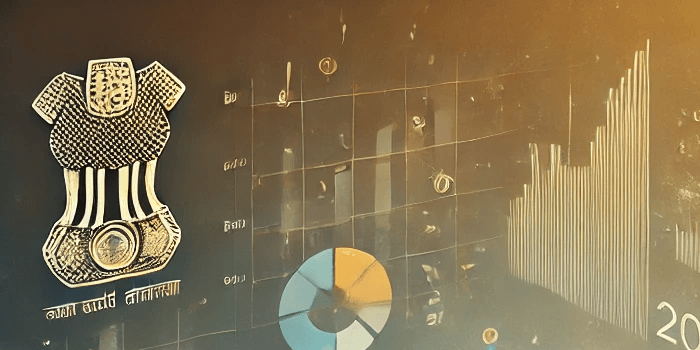Decoding the Union Budget 2024: A Comprehensive Analysis
The union budget 2024 focuses on driving the country’s growth towards a “Viksit Bharat” or a developed nation by 2047. Presented by the Finance Minister, it introduces a range of reforms and policies aimed at various sectors, with significant emphasis on infrastructure, agriculture, employment, skilling, and social welfare programs. The overarching theme of union budget 2024 is to boost productivity, create job opportunities, and enhance the quality of life for Indian citizens.
Key Highlights
Agriculture and Rural Development
- Natural Farming Initiatives: The government’s union budget 2024 aims to train 1 crore farmers in natural farming over two years, supporting them with certification and branding to promote organic produce.
- New Crop Varieties: 109 new high-yielding and climate-resilient varieties of 32 crops have been introduced to improve agricultural productivity.
- Cooperatives for Vegetable Supply: Special focus on promoting cooperatives and start-ups in the vegetable supply chain to enhance collection, storage, and marketing, ensuring farmers get better prices.
- Shrimp Export Financing: NABARD will support financing for shrimp farming and export, highlighting the push towards promoting aquaculture exports.
Infrastructure and Manufacturing
- National Industrial Corridors: Twelve industrial parks will be developed under the National Industrial Corridor Development Programe, boosting manufacturing and export sectors in union budget 2024
- Critical Minerals Mission: Focus on domestic production and recycling of critical minerals, essential for various industrial uses.
- Urban Development: Transit-oriented development is planned for 14 major cities, with large-scale water management projects and the development of 100 urban haats for street food markets.
Employment and Skilling
- Youth Employment: A series of employment-linked incentive schemes, expected to create 50 lakh jobs, with an additional focus on youth skilling and up-gradation of 1,000 industrial training institutes.
- Working Women Hostels: New initiatives include hostels and creches to support higher participation of women in the workforce.
- Internship Program: Over the next five years, 1 crore youth will benefit from internship opportunities with top 500 companies.
Social Welfare and Inclusivity
- Women and Tribal Welfare: union budget 2024 allocates over ₹3 lakh crore for women and girls, with special emphasis on improving the socio-economic conditions of tribal communities.
- Affordable Housing: ₹10 lakh crore investment in PM Awas Yojana Urban 2.0, targeting the housing needs of 1 crore urban poor and middle-class families in this union budget 2024.
Taxation and Fiscal Measures
- Direct Tax Relief: The standard deduction for salaried employees has been increased from ₹50,000 to ₹75,000. Additionally, pensioners will benefit from increased family pension deductions.
- Capital Gains Reforms: Long-term capital gains will now attract a tax rate of 12.5%, while the exemption limit for short-term capital gains on financial assets has been raised to ₹1.25 lakh annually.
Impact on the Indian Economy
The union budget 2024 lays a robust foundation for India’s future economic growth by focusing on crucial sectors such as agriculture, manufacturing, and employment generation. The introduction of climate-resilient crop varieties and promotion of natural farming could significantly boost agricultural productivity, making India more self-reliant in food production.
The focus on critical minerals and industrial corridors will enhance India’s global competitiveness, particularly in sectors like manufacturing, mining, and export, driving up foreign investments. Moreover, the increase in infrastructure spending, with ₹11.1 lakh crore allocated, is expected to provide a significant boost to India’s GDP growth by creating jobs, improving connectivity, and modernizing urban spaces.
The emphasis on digital public infrastructure, such as the introduction of digital crop surveys and issuance of digital Kisan Credit Cards, will improve efficiency in the agriculture sector, further supporting the rural economy.
Overall, the fiscal prudence showcased by reducing the fiscal deficit to 5.4% of GDP, while maintaining inflation control, indicates a balanced approach between growth and financial stability.
Impact on People
Farmers
The union budget 2024 is a boon for farmers, particularly those adopting sustainable farming practices. The introduction of high-yielding crops, financial assistance for shrimp farming, and promotion of cooperatives for vegetable supply will increase farmers’ income and ensure food security. The focus on natural farming, supported by bio-input centers, will also help farmers transition to more environmentally friendly methods, reducing input costs.
Women and Youth
For women, the establishment of hostels and working creches will make it easier for them to balance professional and personal lives, contributing to higher workforce participation. Youth stand to benefit from the new skilling programs and internships, opening up career opportunities across diverse industries. The government’s skilling initiatives, which aim to train 20 lakh youth over five years, will help create a more skilled workforce aligned with industry needs.
Middle Class
The increase in the standard deduction for salaried employees and capital gains exemptions will provide tax relief to the middle class. The boost to affordable housing through PM Awas Yojana Urban 2.0 will ensure that more middle-class families have access to better living conditions, promoting homeownership.
Tribes and Marginalized Groups
The focus on improving the socio-economic conditions of tribal communities, particularly through programs like Pradhan Mantri Janjatiya Unnat Gram Abhiyan, will uplift 5 crore tribal people across 63,000 villages. This, coupled with the financial assistance for women-led households and street vendors, highlights the government’s push toward social inclusion.
Conclusion
The union budget of India 2024 sets the stage for inclusive growth with a clear focus on agriculture, infrastructure, employment, and social welfare. By addressing the immediate needs of farmers, women, youth, and marginalized communities, while pushing for long-term reforms in taxation, capital gains, and critical mineral production, the budget lays a strong foundation for India’s march towards becoming a developed economy. With increased public spending in key sectors and the promotion of sustainable growth practices, the government aims to boost productivity, create jobs, and enhance the quality of life for all citizens.
A budget is not just a statement of figures. It is an expression of government’s philosophy and its faith in the people.

I regard something genuinely special in this web site.